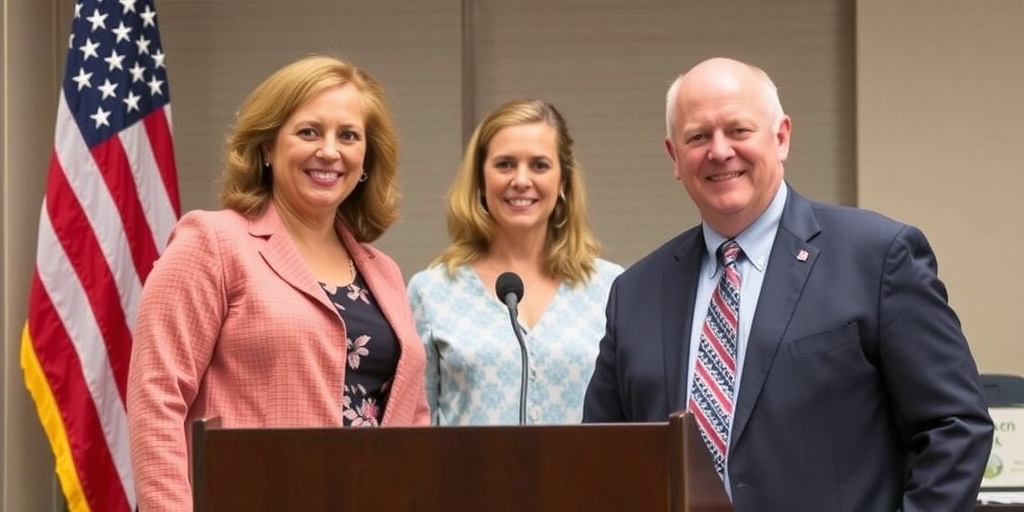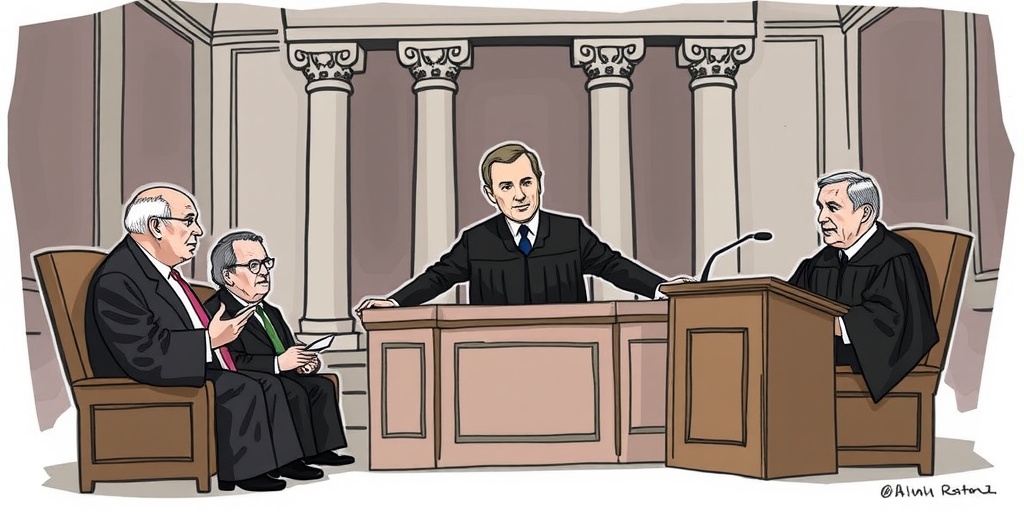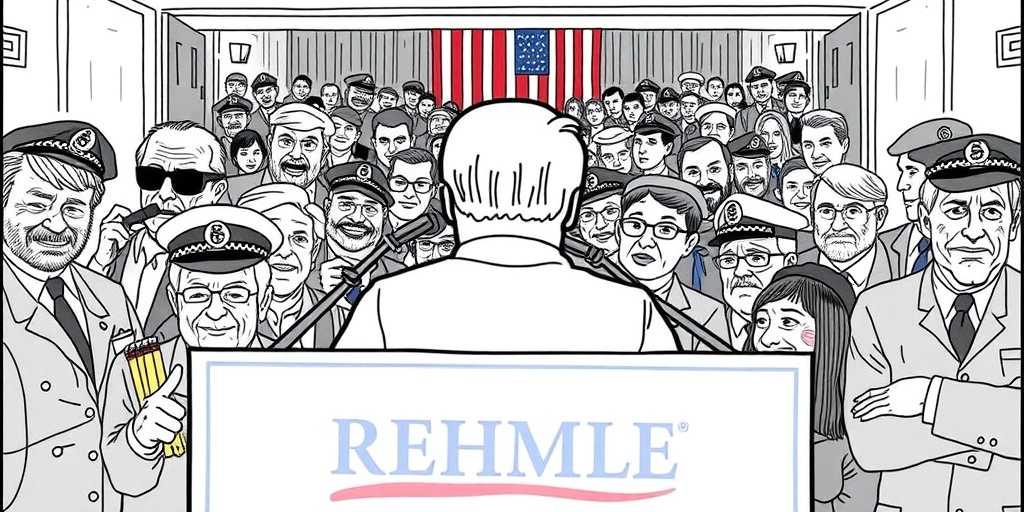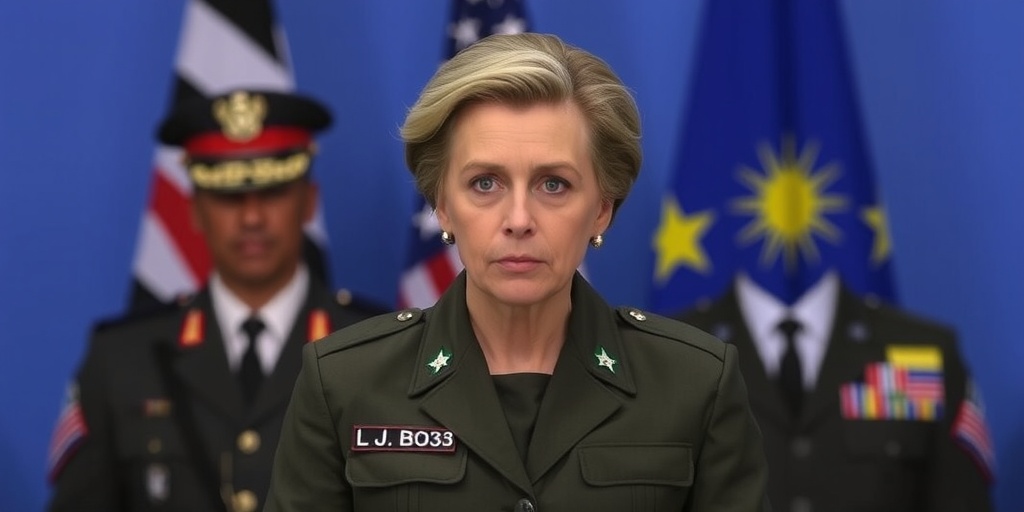Now Reading: Judge Rules Trump Can’t Dismiss Federal Worker Board Chair Without Cause
-
01
Judge Rules Trump Can’t Dismiss Federal Worker Board Chair Without Cause
Judge Rules Trump Can’t Dismiss Federal Worker Board Chair Without Cause
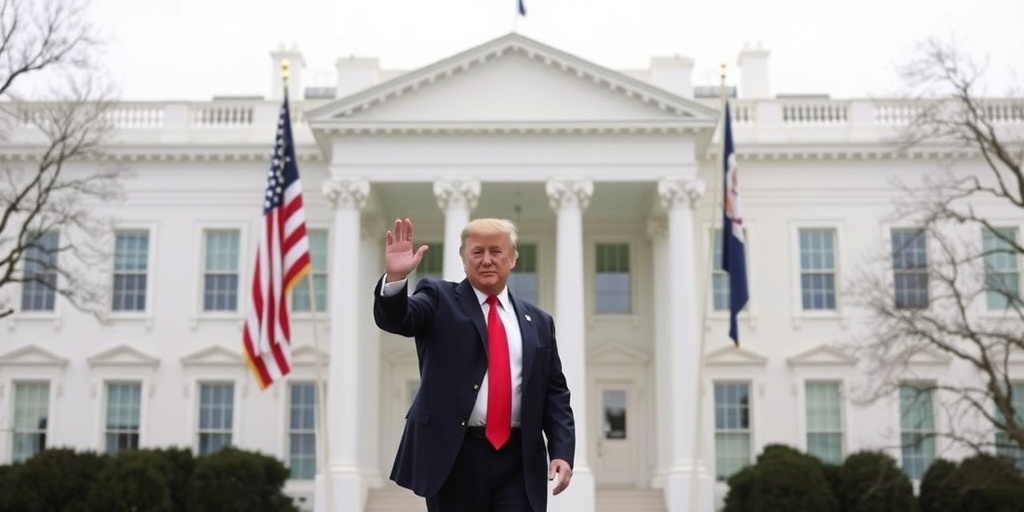
A federal judge ruled on Tuesday to prevent the Trump administration from terminating Cathy Harris, the chair of the Merit Systems Protection Board (MSPB), which safeguards federal employees from political discrimination, unlawful termination, and other unfair labor practices. This ruling marks a significant victory for independent government oversight in the face of political pressures.
Judge Rudolph Contreras, serving in the U.S. District Court for the District of Columbia, determined that Harris must remain in her position. He referenced numerous Supreme Court precedents to support his decision, underscoring the board’s need for independence in fulfilling its mission. Judge Contreras emphasized that the board’s autonomy would be compromised if the president had the power to dismiss its members without cause, even though a court could mandate their reinstatement after the fact.
Cathy Harris, who has a background as a government lawyer, was nominated to her role on the MSPB by President Joe Biden and confirmed by the Senate in 2022. Previously, she was unceremoniously fired by former President Trump earlier in the year. Her termination raised suspicions of political motivations behind the removal, prompting Harris to file a lawsuit asserting that her dismissal was unjust and politically driven.
The MSPB plays a crucial role in addressing grievances from federal employees who find themselves on the receiving end of large-scale personnel changes instigated by Trump and his close associate, Elon Musk. Last week, the board took a stand in favor of six probationary federal employees, asserting that their dismissals were unlawful, thereby reinforcing its importance as a protective body for federal workers.
Judge Contreras’s ruling is significant as it represents a growing challenge to the president’s expansive authority over federal appointments and terminations. The judge argued firmly that providing the president the unilateral power to dismiss members from the independent board would destroy its intended independence. In questioning the broader implications of such a power, he signaled a willingness on the part of the judiciary to scrutinize the executive branch’s actions.
During a hearing earlier this week, lawyers representing Harris engaged in a vigorous exchange of arguments with the government’s legal team regarding the scope of presidential authority. Jeremy S.B. Newman, representing the Justice Department, contended that the president should have constitutional rights that extend to the hiring and firing of officials like Harris. He likened this power to the appointment of heads of executive agencies, suggesting that such discretion is fundamental to the presidency.
Conversely, Nathaniel Zelinsky, Harris’s attorney, rebuffed Newman’s position, labeling the administration’s arguments as fundamentally flawed. Zelinsky expressed concerns that if the court were to accept the government’s rationale, it would grant the Trump administration the ability to indiscriminately terminate anyone holding a position of authority, including those within independent agencies, effectively undermining the principles of independence and impartiality upon which these boards were founded.
Zelinsky argued that the government’s theory could lead to unprecedented levels of executive overreach, where nearly anyone exercising any degree of executive power would be subject to dismissal at the president’s whim. He framed the government’s position as a challenge to judicial review itself, referencing the landmark case Marbury v. Madison as a foundational precedent that underscores the courts’ authority to check executive power.
The debate over Harris’ termination reflects a larger national conversation about the balance of power between the executive branch and independent agencies designed to provide oversight and protect civil service employees. The outcome of this legal battle may set a significant precedent concerning the limitations of presidential power over independent regulatory bodies.
Harris’ case emphasizes the importance of maintaining an impartial civil service that can function without undue political influence. The MSPB is envisioned as a nonpartisan entity, with its members serving staggered terms to ensure diverse representation across different administrations. This legal tussle not only addresses Harris’ immediate situation but also speaks to the broader implications for civil service integrity and the protection of federal employees from political retaliation.
As courts increasingly grapple with the limits of executive authority, this case could prove to be a pivotal point in defining the future relationship between the presidency and independent governmental boards. With legal scrutiny on the rise, the ruling also serves as a reminder of the judiciary’s vital role in checking potential abuses of power by the executive branch, ensuring that constitutional protections for federal employees are upheld.
Stay Informed With the Latest & Most Important News
Previous Post
Next Post
-
 01New technology breakthrough has everyone talking right now
01New technology breakthrough has everyone talking right now -
 02Unbelievable life hack everyone needs to try today
02Unbelievable life hack everyone needs to try today -
 03Fascinating discovery found buried deep beneath the ocean
03Fascinating discovery found buried deep beneath the ocean -
 04Man invents genius device that solves everyday problems
04Man invents genius device that solves everyday problems -
 05Shocking discovery that changes what we know forever
05Shocking discovery that changes what we know forever -
 06Internet goes wild over celebrity’s unexpected fashion choice
06Internet goes wild over celebrity’s unexpected fashion choice -
 07Rare animal sighting stuns scientists and wildlife lovers
07Rare animal sighting stuns scientists and wildlife lovers













